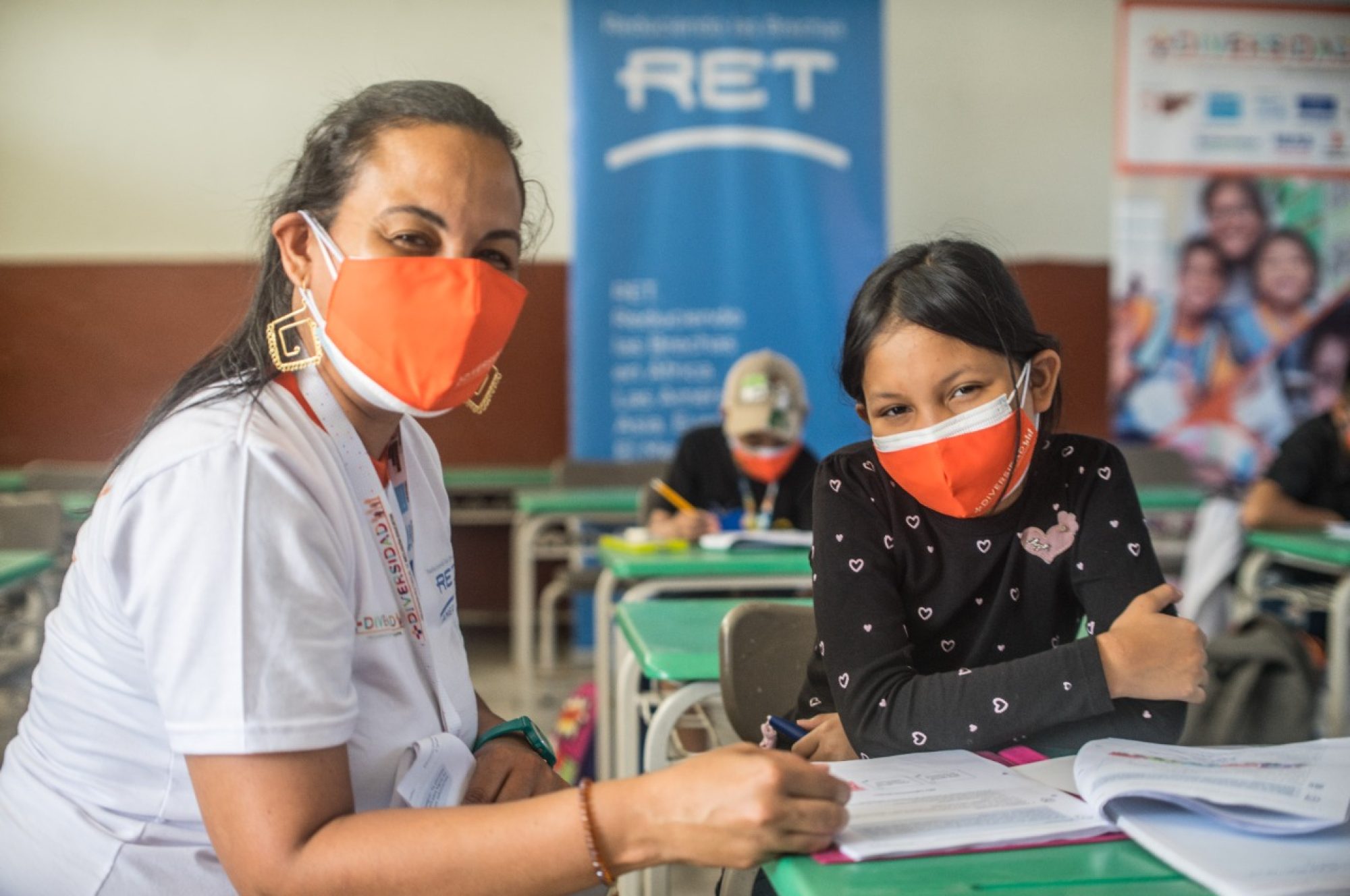SELF-RELIANCE: Building Resilience & Ending Dependency
The social and economic ability of an individual, household or community to meet simultaneously essential needs such as protection, food, water, shelter, safety, health and education are embodied in the concept of self-reliance. To achieve locally sustained outcomes, RET focuses on increasing the self-sufficiency and self-reliance of refugee and displaced young people and their families along with those affected in the host communities by displacement, conflict, violence through programs aimed at strengthening the local capacities, fostering socio-economic empowerment and human development and promoting stable, resilient, and prosperous societies.
This strategy enables RET to better integrate its multi-sectoral approach in various areas of intervention such as protection, economic growth and development, gender equality & social inclusion, disaster risk reduction, health & WASH, nutrition & food security, Education, and other development actions. When communities are resilient, overcoming multi-dimensional poverty becomes a possibility.
We believe that people must influence the processes that shape their lives. RET’s approach to self-reliance works toward creating durable development results by ending the need of any external support. RET’s vision is to capacitate the most vulnerable to become more resilient and lead their own development journey towards rebuilding more resilient and peaceful communities.
Economic Growth & Development
Within the framework of SDG 8 (to create sustainable growth, full, productive and decent work & employment) RET provides sustainable self-reliance opportunities, that align with national laws and regulations, to refugees, other displaced people, and host community members, with a particular focus on youth, women, and persons with disabilities through providing technical support to increase the employability profiles and access to income generation of refugees and other crisis affected people, as well as support to relevant and market driven entrepreneurial ship skills training or technical and vocational programs.
To make self-reliance move from theory into reality, RET’s projects, models of interventions, Monitoring & Evaluation System, Policies and Procedures are all being oriented around the concept of self-reliance and towards building resilience and ending dependency.
COMPLEMENTARITY: A Better Strategy Responding to Gaps and Preventing Duplications
RET’s actions at all levels aim to align with international and national legal and operational frameworks, to bring together leadership, innovative thinking and resources and to create a better strategy responding to gaps. RET coordinates with relevant stakeholders, affected populations and agencies working in the same or correlative fields in order to prevent duplications, ensure complementarity and joint efforts to contribute to country-specific collective outcomes.
A participatory approach: involving the beneficiaries in the process of planning, implementing, and actively participating in decision-making processes.
Community-based approach: strengthening the capacity and building the skills of the community (including governmental entities, local authorities and community-leaders) to have an active role in the provision of solutions.
Coordination mechanisms: coordinating with relevant stakeholders, community leaders, affected populations and agencies working within the same areas of interventions to make our responses more operative, relevant and to avoid duplications.
Capacity-building & Capacity-strengthening
Capacity-building is to perform functions, solve problems, and set and achieve objectives in a sustainable manner that leads to improvements in the lives of our program participants.
Capacity-strengthening is the process through which individuals, institutions, and societies obtain, strengthen, and sustain the capabilities to set and achieve their own development objectives over time.
Learn more about our Partners.


